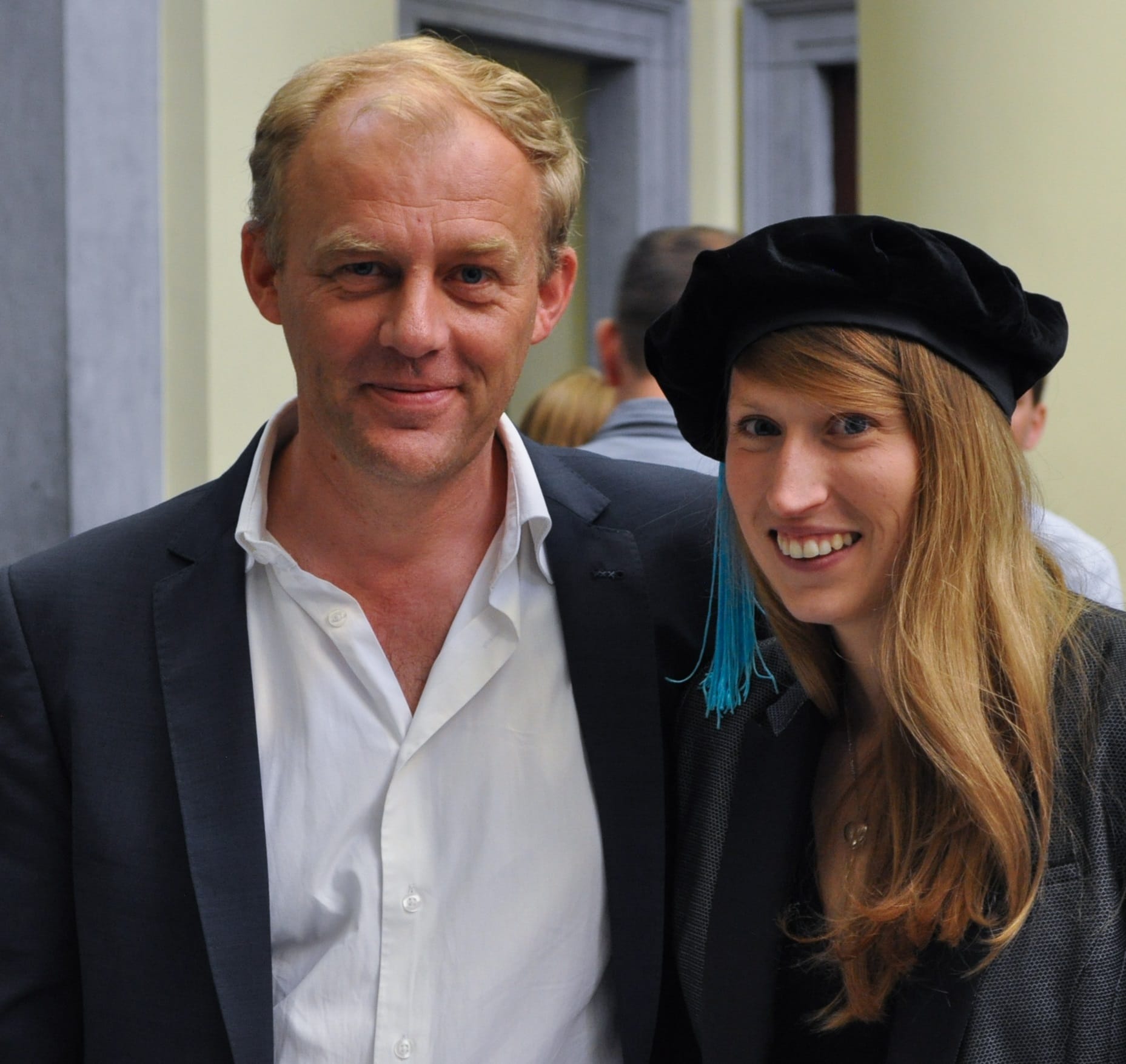Sue Ellen Taelman studied bioscience engineering (with an emphasis on environmental technology ) at Ghent University from 2007 until 2012. She wrote her master’s thesis on the sustainability of algae production while working with the research group EnVOC in the Department of Sustainable Organic Chemistry and Technology, where she learned all about sustainability, life-cycle analysis (LCA) and clean technology. After her graduation, she had the opportunity to start her PhD in the same research group, and she was more than happy to accept. In May, this young woman successfully defended her PhD, explaining the benefits of algae. This got her an interview on Radio 1, so BioVox couldn’t be left out!
Start small to dream big.“I got passionate about algae during the year of my master’s thesis,” says Taelman. “First I was focused on energy production from algae (for example, biodiesel), but soon I realized that this application is not yet feasible, due to economic and ecological drawbacks. In the coming years, we must aim for higher-value applications of algae in Europe, such as, for example, in food, feed and medicines. To increase the market demand in Europe, I already started buying Spirulina as a food supplement: a tablet each day! I believe in the motto: ‘You have to start small to dream big.’” Taelman’s research mainly focused on the following question: Can we cultivate algae in a sustainable way, for several applications, in our northwestern European climate? Compared to the currently used biomass types, algae could be more environmentally sustainable. This had to be assessed in a quantitative way using LCA, so Taelman performed several case studies and developed new analytical methods.
Algae have a lot of potential, but cultivation has to be optimized
Taelman explains: “We gained insight into the environmental footprint of microalgae production for higher-value applications, more specifically as a feed ingredient — on the one hand produced in an innovative cultivation system, and on the other hand in a biorefinery.” Both case studies considered waste stream mitigation. Taelman’s study showed that algae have a larger footprint than the currently used alternative plants, mainly due to the high energy consumption during cultivation, harvest and further processing. “Nevertheless,” continues Taelman, “this is still a young technology, especially in Europe. Algae have a lot of potential, which can be leveraged by fine-tuning the production processes and scaling up the sector.” Taelman’s PhD also focused on improved quantification of the environmental impact caused by anthropogenic surface use, both sea surface and terrestrial land, as this was not previously possible with the necessary level of detail. In relation to algae production, better accounting for surface use (marine and land resources) is extremely relevant when considering nearshore or offshore seaweed cultivation and microalgae production on marginal land. This allows a fairer comparison between surface occupation due to algae production and fertile land use for cultivating terrestrial crops, in terms of environmental impact. Taelman’s PhD provides guidance for policymakers , industrial partners and academics involved in LCA and/or algae production, helping them to develop more sustainable solutions. “I am confident algae can play an important role in Europe’s future; however, R&D funding and co-operation between academia and industry must be given priority in order to overcome the main hurdles in the commercialization of algae-based products,” says Taelman.Hard work pays off
“The struggle to find/receive valuable data from pilot operators was sometimes difficult to cope with,” shares Taelman. “While doing research, you always experience hard times, but in the end, with the help of your supervisors, you always find ways to turn these difficult periods into really good periods. The friendships you make at the office stimulate you every day to give the best of yourself, and this only leads to better science, right?”Life is short, follow your dreams!Taelman will continue at Ghent University as a postdoctoral researcher focusing on waste treatment in a peri-urban environment, i.e., how the development of a circular economy can be stimulated. “This is strongly requested by the government, and I will give it all my attention in the coming years,” concludes Taelman. “Still, in the very far future, I see myself ending up as an entrepreneur, probably in a completely different sector. Life is short, follow your dreams!”


